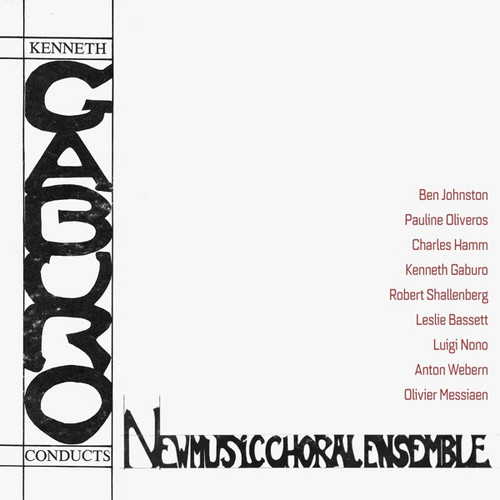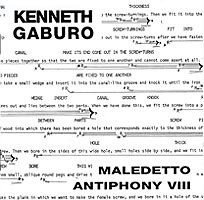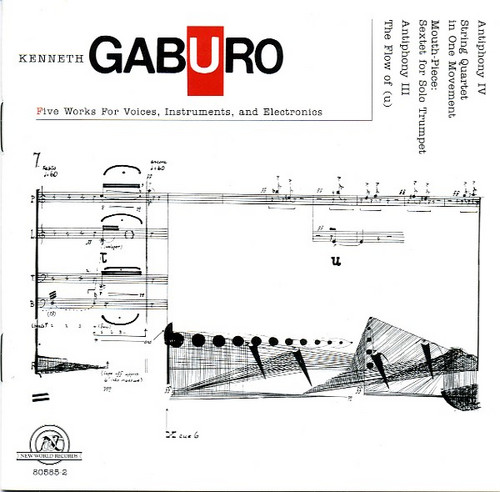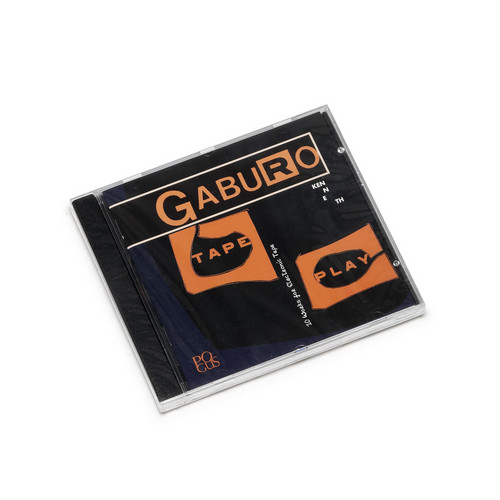Kenneth Gaburo
Kenneth Gaburo (July 5, 1926 in Somerville, New Jersey; - January 26, 1993 in Iowa City, Iowa) was an American composer. Gaburo was a highly influential teacher, and served as a professor of music at the University of Illinois and the University of California, San Diego. His notable students include James Tenney and Allen Strange. He most often made innovative use of electronics and explored tonality, serialism, and what he called "compositional linguistics" such as in his LINGUA series (Listening). He also wrote minimal pieces such as The Flow of (u) for three voices singing unison. The archive of his life's work is held at the University of Illinois Music Library.
Kenneth Gaburo (July 5, 1926 in Somerville, New Jersey; - January 26, 1993 in Iowa City, Iowa) was an American composer. Gaburo was a highly influential teacher, and served as a professor of music at the University of Illinois and the University of California, San Diego. His notable students include James Tenney and Allen Strange. He most often made innovative use of electronics and explored tonality, serialism, and what he called "compositional linguistics" such as in his LINGUA series (Listening). He also wrote minimal pieces such as The Flow of (u) for three voices singing unison. The archive of his life's work is held at the University of Illinois Music Library.
Kenneth Gaburo Conducts New Music Choral Ensemble 1
It was 1967, the summer of love, and the young radicals were huddled together experimenting, sweating in a tiny airless room. Gibberish, scat, sighs, whispers, as well as more refined musical tones, were coming from their vocal cords. For this was not Haight-Ashbury but Urbana, Illinois, and the New Music Choral Ensemble (NMCE) was merely exploring the boundaries of music.
Instigated by Kenneth Gaburo, pioneer of electronic tape music and compositional linguistics at the University of Illinois, …
Lingua II: Maledetto / Antiphony VIII
The work and thought of the American composer Kenneth Gaburo (1926-1993) exhibited many striking changes during his lifetime. In fact, while the world of commercial endeavor still insists that artists develop a recognizable personal "style," Gaburo's life-work can be seen as one of continual change and exploration, rather than one of codification and promotion. Some of these changes are beautifully illustrated by the two works on this CD, Maledetto, for seven speaking voices, from 1967-68, and A…
Five Works For Voices, Instruments, And Electronics
Kenneth Gaburo (1926–1993) composed works for instruments, voices, electronics, multi-media, theater, and a variety of other resources. Foremost among his many interests was a concern with the voice and with language—how we shape language and how we are shaped by it—and with making works that existed somewhere between the boundaries of music and language. Of the works on this CD, three are intensely concerned with what Gaburo termed “Compositional Linguistics” (Antiphony III, Antiphony IV, and M…
Tape play
The Ten Tape Compositions: Fat Millie's Lament, The Wasting of Lucrecetzia, For Harry, Lemon Drops, Dante's Joynte, Rerun, Mouthpiece II, Hiss, Few (in collaboration with Henri Chopin), and Kyrie. "Over his career, Kenneth Gaburo (1926-1993) produced a lot of electronic music. However, works for tape alone are fairly rare in his output. Over about a thirty-year period, ten works for solo tape were produced. Of the ten tape pieces, five were created in the mid-1960s at the University of Illinois,…



